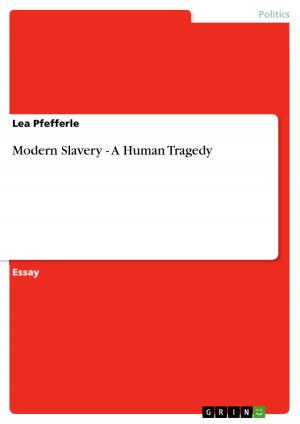The Presentation of Death in the Morality Play 'Everyman'
Fiction & Literature, Literary Theory & Criticism, British| Author: | David Wheeler | ISBN: | 9783656190172 |
| Publisher: | GRIN Publishing | Publication: | May 14, 2012 |
| Imprint: | GRIN Publishing | Language: | English |
| Author: | David Wheeler |
| ISBN: | 9783656190172 |
| Publisher: | GRIN Publishing |
| Publication: | May 14, 2012 |
| Imprint: | GRIN Publishing |
| Language: | English |
Essay from the year 2012 in the subject English Language and Literature Studies - Literature, grade: 2.1, Churchill College, Cambridge, course: BA, language: English, abstract: The relationship in this play between God and the Devil is made clear by their conversation towards the start of the play. God summons Death: 'Where art thou, Death, thou mighty messenger?' (line 63, 66). Death's reply demonstrates his total subservience to God: Death, in this morality play, only has power through the good offices of God: Almighty God, I am here at your will, Your commandment to fulfil. (64 - 65, 66) God tells Death to take Everyman on a 'pilgrimage' in order to prepare himself for the 'sure reckoning' that awaits him - the decision on whether he should go to Heaven or Hell when he dies. Death's reply is consistent with catholic doctrine in that he stresses Everyman's obsession with 'richesse' and that he 'liveth beastly,' but he also gives a hint that Everyman can be saved in line 78 on page 67 - 'Except that Alms be his good friend': alms are acts of charity to the poor and are one of the good deeds that Everyman must turn to in order to escape the fires of Hell.
Essay from the year 2012 in the subject English Language and Literature Studies - Literature, grade: 2.1, Churchill College, Cambridge, course: BA, language: English, abstract: The relationship in this play between God and the Devil is made clear by their conversation towards the start of the play. God summons Death: 'Where art thou, Death, thou mighty messenger?' (line 63, 66). Death's reply demonstrates his total subservience to God: Death, in this morality play, only has power through the good offices of God: Almighty God, I am here at your will, Your commandment to fulfil. (64 - 65, 66) God tells Death to take Everyman on a 'pilgrimage' in order to prepare himself for the 'sure reckoning' that awaits him - the decision on whether he should go to Heaven or Hell when he dies. Death's reply is consistent with catholic doctrine in that he stresses Everyman's obsession with 'richesse' and that he 'liveth beastly,' but he also gives a hint that Everyman can be saved in line 78 on page 67 - 'Except that Alms be his good friend': alms are acts of charity to the poor and are one of the good deeds that Everyman must turn to in order to escape the fires of Hell.















